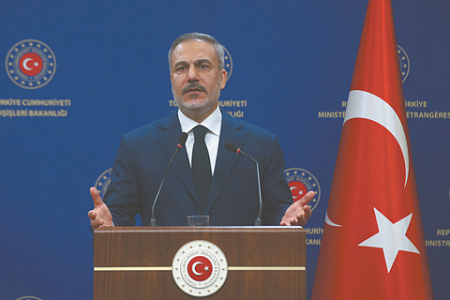
A recent eruption of deadly violence in Syria’s southern Suwayda province is sending shockwaves across the region, drawing in major powers and threatening to shatter the country’s fragile stability. Intense clashes between local Druze and Bedouin communities, which also involved government forces, have put neighboring Turkey on high alert and escalated tensions with Israel, transforming a local dispute into a complex geopolitical flashpoint.
Ankara is watching the situation with grave concern, fearing that the turmoil could empower Syrian Kurdish forces in the country’s northeast. Turkish Foreign Minister Hakan Fidan issued a stark warning to the Kurdish-led Syrian Democratic Forces (SDF), cautioning them against exploiting the chaos for their own gain. Turkey considers the SDF’s core component, the YPG, to be an extension of the Kurdistan Workers’ Party (PKK), which it designates as a terrorist organization. In a dual-pronged message, Turkey’s Ministry of Defense also offered support to the transitional government in Damascus to enhance its security capabilities while simultaneously demanding that Israel cease attacks that risk plunging the region into further chaos.
In response to the violence, which began around July 13, the SDF announced it was opening humanitarian corridors to aid the embattled Druze population. SDF Commander Mazloum Abdi stated that he had received calls for help from Suwayda and emphasized that Syria’s future must be built on dialogue, not retribution. Meanwhile, the transitional government in Damascus, under pressure from foreign mediators including Turkey and the United States, announced a ceasefire on July 16. Syrian transitional leader Ahmed al-Sharaa delivered a national address, vowing that Syria would not become a “testing ground for foreign conspiracies” and reassuring the Druze community of its integral role in the nation.
However, the ceasefire remains tenuous. One of the main Druze factions, led by Sheikh Hikmat al-Hijri, publicly rejected the agreement and reportedly continued attacks on Bedouin settlements even after the truce was announced. This highlights the deep divisions within the local community and the difficulty of implementing a lasting peace. The situation is further complicated by allegations of Israeli involvement, including airstrikes near the Syrian capital, which analysts suggest were part of an effort to fuel the conflict and potentially draw Kurdish forces into the fray.
Analysts believe Turkey may have strengthened its strategic position by successfully discouraging a potential alliance between Druze factions and the SDF, which would have created a severe challenge for the Damascus government. The episode leaves the Syrian transitional authority in a precarious position, caught between Israeli-backed pressure in the south and the autonomous Kurdish-led administration in the north. The delicate balance of power in Syria is once again under threat, with the potential for contained clashes to escalate into a broader confrontation involving rival regional powers.
